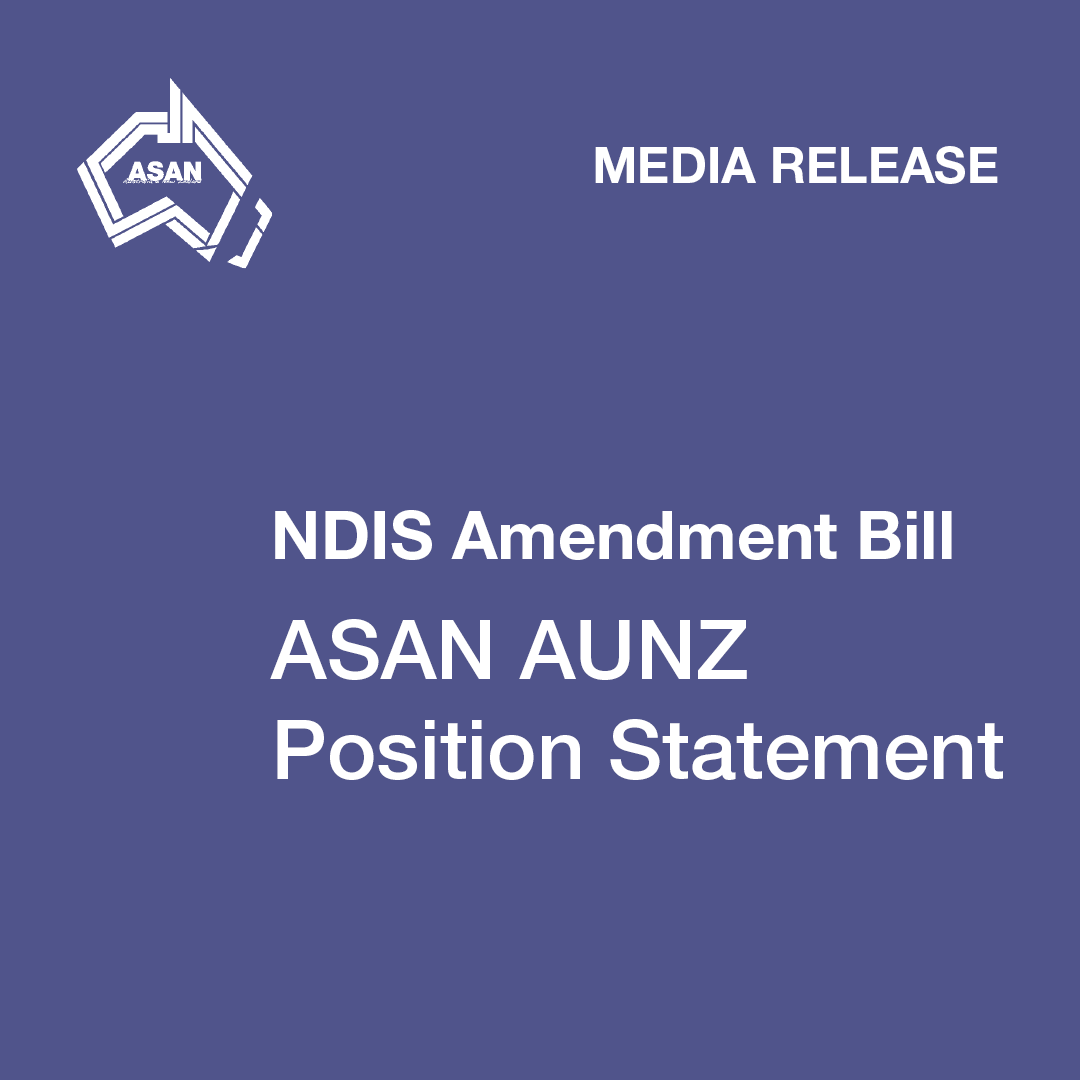The Autistic Self Advocacy Network Australia and New Zealand raises concerns over NDIS Amendment Bill.
The Autistic Self Advocacy Network Australia and New Zealand (ASAN AUNZ) is deeply concerned by the recent passage of the NDIS Amendment Bill. We believe that these legislative changes will make it more difficult for Autistic people to access the supports they need to live independent, fulfilling lives. This is particularly alarming given that autistic people represent 35% of all NDIS participants.
Lack of Co-Design and Proper Consultation
The NDIS review promised that any changes would be co-designed with people with disability, ensuring that their perspectives were heard, and their needs addressed. However, the passage of the NDIS Amendment Bill occurred in haste and without the thorough consultation. ASAN AUNZ holds grave concerns regarding the introduction of Section 10 inclusion and exclusion lists that will severely limit participant choice and control.
“The consultation process has been largely tokenistic, and we feel that our concerns, along with those of other advocacy groups, have not been properly addressed,” said ASAN AUNZ’s spokesperson. “The choices made with the NDIS Amendment Bill have the potential to significantly impact future design to the scheme, including critical areas like the new Navigator function, planning, and participant experience.”
Key areas of concern
ASAN AUNZ has identified several other major concerns with the current direction of NDIS reforms:
- Participant safety – The NDIA must prioritise mitigating risks of harm to participants, ensuring their safety in all decision-making processes.
- Person-centred planning – It is essential that participants, rather than planners, remain at the centre of plan creation.
- Conflict of interest – The NDIS Amendment Bill may be compounding the potential for and impact of conflicts of interest.
- Intersectional wellbeing – The wellbeing and mental health of participants, particularly those with intersectional identities, has been overlooked in these reforms.
- “Reasonable and necessary” support – The use of rigid lists undermines the core NDIS principle of providing “reasonable and necessary” supports tailored to each person’s unique needs.
Advocating for Genuine Co-Design
ASAN AUNZ will continue to advocate strongly for an effective and authentic co-design process that includes representation from Autistic people. We believe that how these changes are designed will directly impact the success of the reforms and the long-term effectiveness of the NDIS.
We will also collaborate closely with other Disability Representative and Carers Organisations (DRCOs) to ensure the concerns of both the autism and broader disability communities are heard. Our goal remains to ensure that the NDIS is reformed in line with the blueprint laid out by the NDIS Review, fostering a more inclusive and supportive system for all participants.
For media inquiries, please contact: comms@asan-aunz.org and operations@asan-aunz.org




